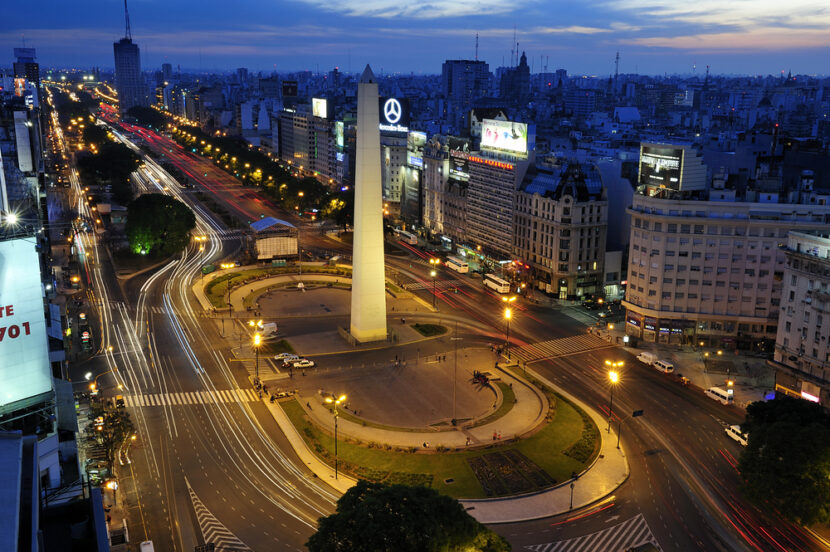BUENOS AIRES, Argentina – Transportation unions brought Argentina to a standstill on Tuesday with a one-day national strike to protest income tax rates and high inflation they say is eroding their earnings.
Flights were cancelled, schools shut down, banks closed and thousands of businesses were shuttered along largely empty streets.
While transportation workers represent only a small part of the South American country’s workforce, shutting down trains and buses created a domino effect because many Argentines have no other way to get to work or school.
Most domestic and international flights were cancelled because transportation unions represent many airport workers. Some schools cancelled classes and others announced half-days as teachers had trouble getting to work.
Even drivers with their own cars had a hard time getting into the capital because members of the Socialist Workers party blocked the principal routes into Buenos Aires.
“Total impact,” said Roberto Fernandez, leader of the Automotive Tramways Union, one of the main organizers, told Radio Mitre. “But for us there is no happiness here because the country loses. Unfortunately, the government refuses to be reasonable.”
The unions argue that high taxes and inflation, which private economists put at around 35 per cent, have eroded wage gains. They also want to raise the minimum income on which taxes are applied.
Top officials in President Cristina Fernandez’s say the tax rates are fair and affect only a small percentage of workers, those who earn more than 15,000 pesos ($1,765) a month.
The strike comes during Holy Week, a time when business generally slows down and some people take days off from work. It follows the recent collapse of negotiations between the government and the unions.
Unions hold great influence in Argentina, representing an estimated 30 to 40 per cent of the 11 million registered workers across all sectors of South America’s second-largest economy.
More than trying to extract concessions from a lame-duck president, the strike was a way to send a signal to candidates before the October general elections, said Patricio Giusto, director of Political Diagnostic, an Argentine think-tank . Fernandez is barred from running for a third term in October.
“Whoever wins, the next president is going to have to deal with this situation,” Giusto said. “It’s unavoidable if they don’t want to have conflicts” with a large sector of the population.

